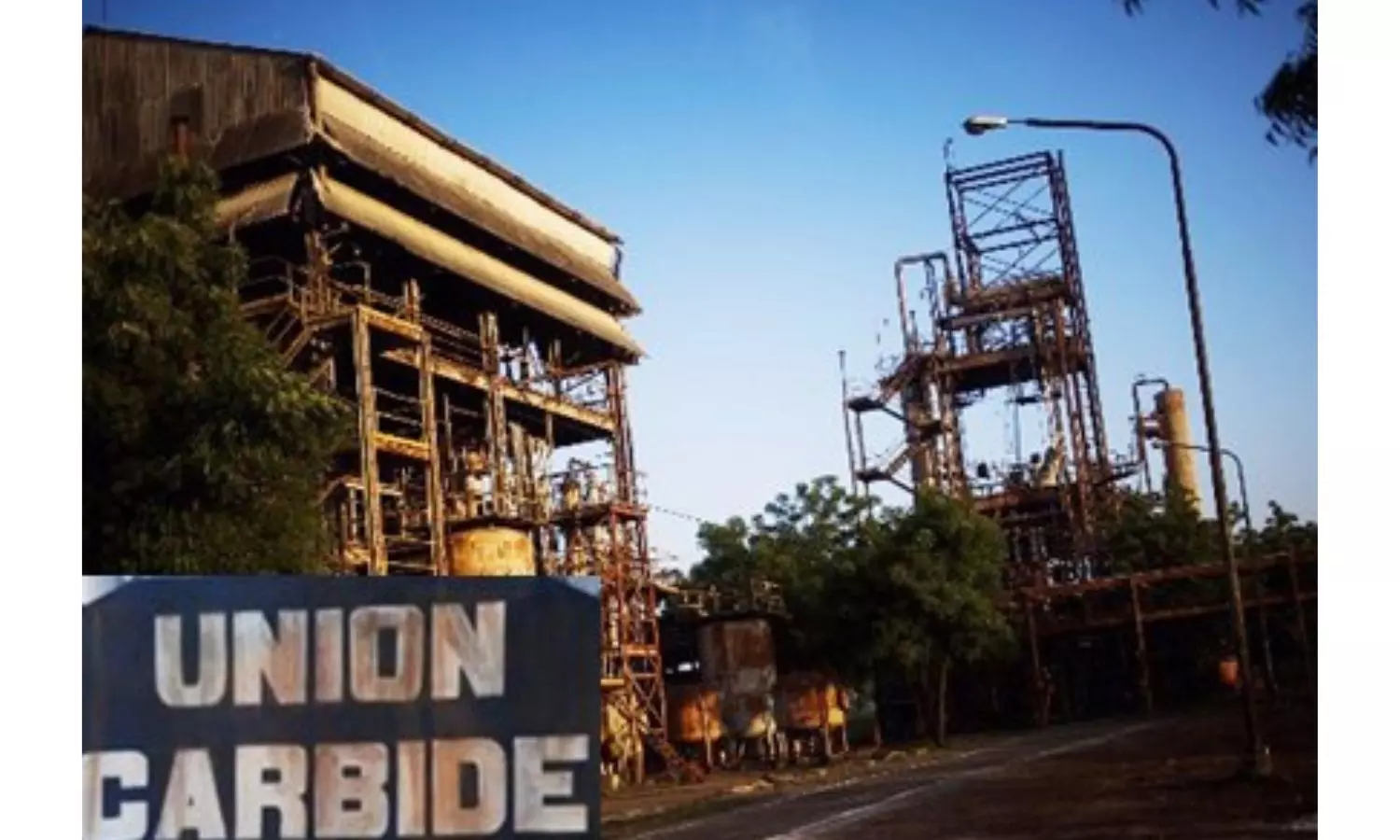Bhopal Gas Tragedy: Move to Dispose off toxic Waste of Union Carbide Begins

Bhopal: Nearly four decades after the 1984 Bhopal gas tragedy that had killed more than 15,000 people and affected over six lakh others, the process to dispose of the toxic waste, stored in the premises of the now-closed Union Carbide plant here, has been set in motion with the allocation of Rs 126 crore to Madhya Pradesh government by the Centre for the purpose.
An official communication regarding the matter has indicated that the Union Forest, Environment and Climate Change Ministry has transferred the money to the state government recently for the disposal of the 337 metric tonnes of hazardous waste, stored in the premises of the Union Carbide plant, at the incinerating facility at Pithampur in Dhar district in Madhya Pradesh, sources said.
The agency, Pithampur Industrial Waste Management Private Limited, has been finalised through the auction process to dispose of the waste, a senior officer of the gas relief and rehabilitation department of the Madhya Pradesh government told this newspaper on Thursday.
According to him, the 337 metric tons (MT) of hazardous waste of the Union Carbide plant will be disposed of at the incinerating facility in Pithampur, around 300 km from here, with the supervision of the Central Pollution Control Board (CPCB) which has also been asked to submit environment impact report post-disposal of the waste at Pithapuram to the Centre.
According to Pithampur Industrial Society president Gautam Kothari, the capacity of the Pithampur incineration is two MT per hour and it will take at least 165 days for the destruction of 337 MT of toxic waste of the Union Carbide plant at the facility.
Around 27,000 solid waste of the plant had already been disposed of at the plant site.
An estimated 347 MT of toxic waste in liquid form of the plant has been stored in the premises of the closed factory for their suitable disposal for the past four decades.
The Centre had first initiated a move to dispose of the liquid toxic waste of the plant in 2015 by conducting a trial disposal of ten out of the total 347 MT of the hazardous waste of the factory at the Pithapuram incineration facility.
“It was a successful trial”, Mr Kothari said.
However, the locals had launched an agitation against disposal of the toxic waste of Union Carbide at Pithapuram, leading to the suspension of the further disposal of the waste at the facility then.
Leakage of deadly methyl isocyanate (MIC) gas in the pesticide plant of Union Carbide in the night of December two-three, 1984 had led to the world's worst industrial tragedy.

